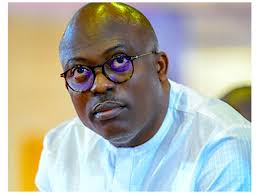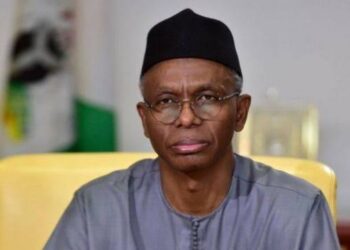In this concluding part of the interview at the recent Nigerian Bar Association 2017 Annual General Conference in Lagos, Vice President Yemi Osinbajo tells CNN’s ZAIN ASHER that the economic recession provided an opportunity for local production, reveals the plan to set up special off ences’ courts, assures on making Nigeria self-suffi ciency in rice production before the tenure runs out, as well as providing the nation a purposeful, transparent and honest leadership
So already, you’re saying that wealthy Nigerians have come forward voluntarily to say that this is what I own? Yes, we’ve got quite a few, we are expecting very many more, some of who are here in this audience. So, while President Buhari was away, you obviously have been praised a lot because you’ve implemented a lot of reforms. Now that the President is back, can we expect the same pace of those reforms to continue? Yes. Th e President, of course as you know, is very committed to everything we’ve done.
I mean, as much as it was possible, we worked together on most of these issues. And what we are doing essentially was executing a plan, the economic recovery and growth plan, and we intend to continue to execute it as effi ciently as possible. So, I think we should expect double eff orts as opposed to single eff ort now that the President is back. And I’m sure that you’re going to see very strong leadership. ERGP and 2018 Budget First, it is refl ected in the budget. As a matter of fact, it is the basis of the budget. Th e plan is the basis of the 2017 budget and the 2018 budget. As a matter of fact, it would be the basis for our budgets from 2017 to 2019.
Th e plan itself is meant to go on to 2020. So, now every aspect of it is refl ected in the plan. Our focus is on agriculture; our focus is on power, infrastructure, especially railways, roads, and all of that, and ensuring that we send more than ever before on capital. For instance, we spent about N1.3 trillion on capital, which is the largest ever spent on capital in this country, and we intend to increase the capital spent year on year.
Th at’s part of the Economic Recovery and Growth Plan. Part of it is also is the power sector reform where we are hoping that we’ll be able to do both off grid and on grid power and improve power supply, because that obviously is one of the most basic needs for the infrastructure take-off and for the take-off of several sectors. So, the Economic Recovery and Growth Plan is really the basis of the budget, and we expect to see results going forward. Overall, do you think Nigeria has truly, and I want you to answer this from your heart, not as a politician, do you think Nigeria has actually learnt its lessons from the oil prices?
Well, I think a lot has to do fi rst with discipline and the way that government approaches its business. I think that we have shown that we can be disciplined and we’ve shown even in the execution of our plan that we are disciplined about it and that we are serious about it. I think also the fact that this particular oil shock led to a recession and to grave economic consequences is a lesson that would be much more diffi cult to forget than in the past. I think also is the resurgence of the nonoil sector is several ways is also evident of the fact that we are not going to, we can’t go back the same way. And there is also evidence all over the world that oil is gradually losing relevance. So, we are not going to have much of a choice, if you see what I mean. In the next 10, 15 years or so, it is going to be extremely diffi cult to live on oil for any oil producing country. Look at China, Japan, everybody is investing in electric cars. Japan has more charging stations for cars than petrol stations. China is subsidising electric cars. Th e UK, several European countries are setting deadlines for more energyeffi cient cars, electric cars and those kinds of things. So, we really won’t have a choice, I don’t think that we are going to have the luxury of sliding back into some comfort that comes from just hydrocarbon resources. I don’t think we are going to have that luxury and I think it’s going to become evident in the next few years. But given that we’ve been through a recession, you are right in the sense that it is going to be very diffi cult to forget what we have experienced in this country. But I think a lot of Nigerians actually need to change their habits, especially when it comes to relying on imports. I think the way it works is that at the end of the day, it is an economic choice, a choice that you have to make. If imports are more expensive, as they are now, you are going to have to make a choice to buy local.
I mean, government has a policy. As I said, we have an Executive Order which was issued, which insists that government itself must purchase locally, must give priority to local content goods, must give priority to goods that have local content in all our purchases, including military purchases. So as a matter of policy, we are where we should be and we should see some results for that. But the other choices that have to be made are economic choices. If people see that imports are more expensive, they are more likely to look for local options, and already that is becoming the case. Local options are defi nitely becoming more popular. Would that still be the case when we are out of recession?
I think so. I think we are going to have a situation where, because if you look at what we are seeing, I’ve seen that manufacturing in Nigeria, if you look at what we are seeing, I am seeing that food, beverages etc., is really ramping up, packaging is much better, quality is much better, even clothing, shoes, quality is much better.
Th ings are improving. Many people are buying clothes that are made in Nigeria. More people are wearing Made-inNigeria clothing. Textiles are still manufactured, most of it is imported, but there is a value added because people are actually buying made in Nigeria clothing. I think that we are in a place where that is going to become more popular as effi ciency improves local industries. It is going to become, as I said, an economic choice, and I think that Nigerians are fi lling the gap, fi lling all of the spaces that are being created by more expensive imports. And I think that we will fi nd that Made-in-Nigeria becomes a reality.
But it is not the sort of thing that you can enforce beyond controlling imports and those kinds of things. I think it will come down at the end of the day to how effi cient and how the quality of local products become. I think that we are already seeing that. I think that in the next few years, you are going to see change in terms of patronage of Made-in-Nigeria products. I think that we are going to see a real change. Since your administration took offi ce, how organised are the typical average entrepreneurs in Nigeria?
Let me say that fi rst, opportunities have arisen. What has happened for example is that imports are more expensive, so there are more opportunities for local production. I just gave you an example of agriculture. Th ere are more opportunities in agriculture, more opportunities in agroprocessing; more opportunities even in technology products for young people.
Now, that does not mean that you will fi nd an immediate effi ciency or immediate prosperity but the opportunities are there. think that what we have found and what someone would say to you that a recession or crisis really may sound bad but it really brings about signifi cant opportunities and signifi cant challenges, so what we are trying to do is to improve the business, improve the environment for doing business so that those opportunities become realities, so that they actually become something in the hands of young people and entrepreneurs who are taking those opportunities, and who are trying to profi t



